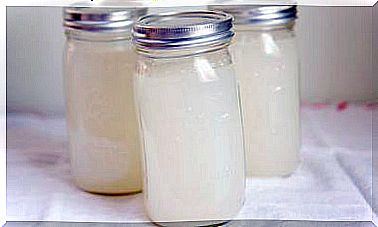The Worst Habits That Damage Your Heart
Some of the habits that are maintained on a daily basis can affect your health in the long term. Find out which habits are most damaging to the heart and what to do to address them.
In order to avoid diseases and enjoy a better quality of life, it is convenient to identify various habits that damage the heart and to know the consequences that they cause.
Since this is the organ that pumps blood throughout the body, it must receive the necessary nutrients to adequately fulfill its function.
However, sometimes we maintain certain behaviors without being aware that they are unhealthy practices and with long-term negative physiological effects. Let’s see what some of them are and what to do in each case.
What are the habits that most damage the heart?
Before you start to feel chest pain or tightness, a feeling of choking or numbness, there is the option to start taking better care of yourself. For this, it is possible to identify some of the habits that are related to cardiovascular health:

1. Excessive alcohol consumption
As reported in a review published in the Mayo Clinic Proceedings journal , abusive alcohol intake is significantly associated with the risk of cardiovascular disease.
That is, if every day you drink a large amount of alcohol or high-proof drinks (vodka, tequila or rum), your organs, including the heart, will be exposed to a greater extent to an agent that is toxic to the body.
Therefore, reducing the consumption of alcoholic beverages will be a key strategy to preserve your health and well-being.
Faced with addiction problems, do not hesitate to request the help of a specialist.
2. Lack of physical activity
There is now a robust body of evidence that supports the protective role of physical exercise against heart disease.
Recent studies such as the one carried out by a group of researchers linked to the University of Oxford report findings in this line and warn of the damages that sedentary lifestyle entails.
So, incorporating this element on a regular basis to your own lifestyle is considered one of the changes to consider. It can be a sport that you like or also activities such as walking or dancing. The question is to move.
3. Inadequate nutrition
As indicated by a study by the Division of Cardiovascular Diseases at the Mayo Clinic, a diet that combines fish, legumes, fruits, vegetables, whole grains, and monounsaturated fats has important benefits for heart health. A clear example of this type of diet is the Mediterranean.
Instead, a menu based on soft drinks, fast food, pre-cooked or breaded dishes would be the opposite. In these cases, the high content of salt and saturated fat is related to an increase in hypertension and cholesterol levels, respectively, which increases the probability of suffering from cardiovascular problems (such as a heart attack).
On the other hand, it is true that food is often added to salt to enhance its flavor, but there are other alternatives, such as olive oil, spices (rosemary, basil, oregano, cumin, pepper), lemon juice or vinegar.
However, if you dare to introduce these ingredients, your meals will be healthier and your body will thank you.

4. Tobacco use is another of the habits that damage your heart
Smoking is one of the worst habits that damages your heart. Not only does it pollute the lungs, but it also raises blood pressure and alters the endothelium (internal tissue of blood vessels), which in turn produces collateral disorders associated with increased cardiac effort.
Such negative effects are consistently documented. For example, an investigation by Dr. Anna Dikalova and her team obtains results in this regard.
In addition, according to an article by the Division of Cardiovascular Medicine at the University of Kansas, the adverse consequences of tobacco smoke are suffered even by those around you.
Perhaps you have already thought about it, but it seems obvious that to avoid all these symptoms the decision would be to “quit”, to abandon this highly automated behavior. Nobody says it is easy, so if you fail after several attempts, it is essential to seek professional help.
5. Insufficient sleep and rest
Likewise, the duration and quality of sleep are protective factors against heart disease. This is what the meta-analysis that Professor Chun Shing Kwok carries out with other authors to explore the link between these variables and cardiovascular health.
According to this, if you get enough sleep (between 7 and 8 hours a day), you will live longer and better. In this way, both physical and mental recovery is facilitated and chronic fatigue is prevented.
6. Emotional problems
In parallel, it is convenient to consider the influence exerted by prolonged stress and the continued experience of emotions such as anger or anxiety.
The relationship of this type of response with the risk of coronary heart disease has been pointed out from various sources. On the one hand, a study published in 2019 in the British Medical Journal highlights the strong impact of stress.
On the other hand, we find studies such as that of Dimitrios Vlachakis and collaborators that emphasize personal characteristics of the individual, emotional intelligence being the most relevant component.
Given these evidences, in the face of persistent discomfort, psychological care offers the opportunity to learn to manage concerns and the subjective perception of them.
What to do before these routines that damage the heart?
If some of these habits are present in your life, medical consultation as well as specialized professional help represent the way to go.
No rush or drastic decisions are required, but you do need to ask for help to make the necessary adjustments and enjoy a healthy lifestyle.
Remember that you only have one heart and that this is the engine that makes your body “go”.









